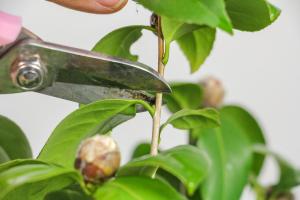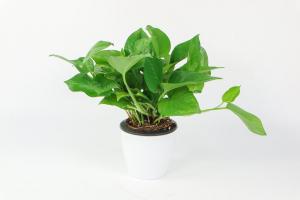What is a Sponge?
Sponges are fascinating organisms that live in aquatic environments such as oceans, lakes, and ponds. They have long been a subject of curiosity as they look like plants but behave like animals. So, is a sponge a plant or animal? Let's dive deeper and discover the truth!
The Anatomy of a Sponge
Before we can determine whether sponges are plants or animals, we must first understand their anatomy. Sponges are multicellular animals, but they lack organs and tissues. Instead, their bodies consist of a mesh-like structure of cells called choanocytes. These cells help the sponge filter water and extract nutrients. The outer layer of a sponge's body is covered in spiky structures called spicules, which protect the sponge from predators.
Plant or Animal?
So, are sponges plants or animals? The answer is simple: sponges are animals. While they may resemble plants due to their stationary nature and lack of complex organs, sponges possess unique animal characteristics that set them apart. For example, sponges are capable of feeding on tiny organisms that they filter from the water. Additionally, sponges reproduce sexually or asexually, a trait that is characteristic of animals.
The Diversity of Sponges
There are over 5,000 known species of sponges, each with its own unique characteristics. Some sponges form intricate, branching shapes that resemble coral, while others grow into simple, blob-like structures. Sponges can also range in size from less than a centimeter to over two meters in diameter! Despite their differences, all sponges share the same basic anatomy and characteristics, making them a unique and fascinating group of animals to study.
The Importance of Sponges
Sponges play a crucial role in many aquatic ecosystems. They help to filter water, removing harmful toxins and pollutants that can harm other animals and plants living in the same environment. Additionally, sponges provide habitat and food for many other species, from tiny microorganisms to large fish and mammals. Researchers are also studying sponges for their potential medical benefits, as some species have been found to possess antibacterial and anticancer properties.
In Conclusion
In summary, sponges are animals, not plants. While they may resemble plants due to their stationary nature and lack of complex organs, they possess unique animal characteristics that set them apart. With thousands of species to study and a crucial role to play in aquatic ecosystems, sponges are a fascinating subject of scientific inquiry and a valuable resource for humans and animals alike.

 how many times do yo...
how many times do yo... how many planted tre...
how many planted tre... how many pine trees ...
how many pine trees ... how many pecan trees...
how many pecan trees... how many plants comp...
how many plants comp... how many plants can ...
how many plants can ... how many plants and ...
how many plants and ... how many pepper plan...
how many pepper plan...






























